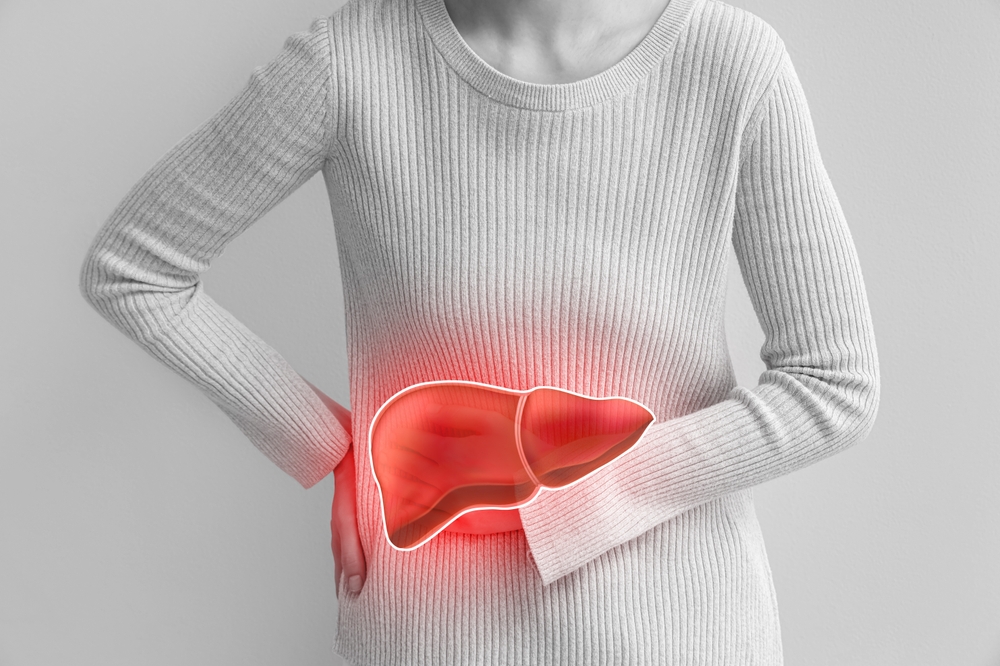Ever wonder why your energy levels have plummeted or why that stubborn weight won’t budge? Your liver might be waving red flags you’ve been ignoring. The good news? That fatty liver diagnosis isn’t a life sentence. Unlike what many think, you don’t need fancy medications or extreme interventions to turn things around.
Let’s cut through the confusion and get to what actually works. Your liver is incredibly forgiving—give it half a chance, and it’ll bounce back like that friend who always shows up even after you’ve repeatedly canceled plans.
What exactly is happening in there?
When doctors say “fatty liver,” they’re basically telling you your liver cells have become storage units for fat that should be elsewhere. Think of it like when your closet gets so stuffed that you can barely close the door—your liver can’t function properly when it’s packed with fat.
Your liver processes everything you eat and drink. It’s working overtime to filter toxins, produce vital proteins, and manage your metabolism. When fat makes up more than 5% of your liver’s weight, things start going sideways.
The tricky part? Most people feel absolutely nothing until the damage is serious. No pain, no obvious symptoms—just your liver silently struggling while you carry on with your pizza nights and happy hours.
Diet tweaks that make your liver do a happy dance
Forget those extreme detox programs that have you drinking strange concoctions. Your liver responds best to sustainable changes that you can actually stick with.
Mediterranean is the move. The Mediterranean approach isn’t just a diet—it’s practically liver therapy. Load up on olive oil, fatty fish like salmon, nuts, and colorful vegetables. These foods are packed with anti-inflammatory compounds that help your liver heal itself.
Sugar is your liver’s public enemy #1. Every time you down that soda or candy bar, your liver transforms that sugar into fat. Cut back gradually—even reducing by half can make a dramatic difference in liver fat content within weeks.
Fiber is your secret weapon. Foods rich in fiber help move things along in your digestive system and reduce the absorption of fat. Beans, lentils, oats, and fruits with edible skins should become your new best friends.
Movement matters more than you think
You don’t need to become a marathon runner overnight. Your liver perks up with surprisingly modest amounts of activity.
The magic 150. Aim for 150 minutes of moderate exercise weekly. That’s just 30 minutes, five days a week. Walking briskly while listening to your favorite podcast counts!
Strength training helps too. When you build muscle, you create more storage space for glucose that would otherwise turn to fat in your liver. Basic bodyweight exercises or light dumbbells are perfectly sufficient.
Consistency trumps intensity. A daily 20-minute walk beats a punishing two-hour gym session once a week. Your liver responds to patterns, not occasional heroic efforts.
Sleep your way to liver health
Who knew your liver cares about your sleep schedule? Turns out, it really does.
The seven-hour sweet spot. Studies consistently show that people getting less than seven hours of sleep have higher rates of fatty liver. Your liver performs critical repair work while you’re sleeping.
Timing matters too. Your liver follows circadian rhythms. Going to bed and waking at consistent times helps optimize liver function—even on weekends.
Screen curfew helps. The blue light from phones and tablets disrupts sleep quality. Put devices away at least 30 minutes before bedtime to help your liver get the quality rest it needs.
Stress less for liver success
Your liver and stress hormones are not friends. When you’re constantly stressed, cortisol floods your system, promoting fat storage—especially around organs like your liver.
Five-minute meditation can work wonders. Even short meditation sessions can lower stress hormones. Try apps that guide you through quick mindfulness exercises.
Nature therapy is real medicine. Simply being in green spaces lowers cortisol levels. A 15-minute walk in a park gives your liver a stress-hormone break.
Laughter really is medicine. Watching comedy or spending time with funny friends creates physical changes that support liver health. The body can’t tell the difference between real and fake laughter—both work!
The supplements worth considering
While no pill replaces lifestyle changes, certain supplements have shown promise for supporting liver health.
Milk thistle contains silymarin, which may help reduce inflammation and support liver cell regeneration.
Vitamin E has some evidence suggesting it helps reduce liver inflammation when taken in appropriate doses.
Omega-3s from fish oil supplements can help reduce liver fat, especially if you don’t regularly eat fatty fish.
Always check with your doctor before starting any supplement regimen, especially if you’re taking medications.
When to see your doctor
While natural approaches work wonders, certain situations call for medical attention:
- Unexplained weight loss
- Yellowing of skin or eyes
- Severe fatigue that doesn’t improve with rest
- Pain in the upper right abdomen
- Swelling in your legs or abdomen
Your comeback story starts now
Your liver is remarkably resilient. Even if fat has been accumulating for years, positive changes can begin reversing the damage within days. The cells start clearing out excess fat almost immediately once you give them the right environment.
Think of these changes as an investment with compound interest. Small daily choices add up to dramatic improvements over months. Most people see measurable improvements in liver enzymes within just 4-6 weeks of consistent effort.
Remember—this isn’t about perfection. It’s about progress. Your liver doesn’t expect you to be flawless—it just needs you to be better than you were yesterday. Give it half a chance, and this incredible organ will reward you with energy, better digestion, clearer thinking, and yes, even that weight loss you’ve been chasing.
Your liver has been waiting for you to make these changes. Why not start today?














